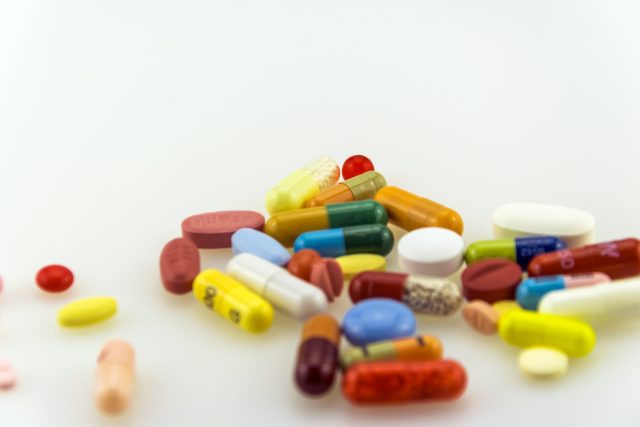
Several hundred medicines could be withdrawn from pharmacies in Europe because they have been found not to comply with the rules governing Europe’s single market. The drugs are generics tested in a lab in India for European pharmaceutical companies and suspected not to be as effective as reference medicines. Specifically, following investigations last year, experts at the European Medicines Agency (EMEA) concluded that the tests carried out in the Indian lab were inconclusive, as they did not prove that these drugs release the same amount of active substance into the body as the innovative drugs they mimic. These are generally treatments for cancer, heart disease or diabetes. The European Medicines Agency is now asking member countries to suspend their marketing authorizations.
Over the past 5 years, 3000 medicines have been withdrawn from the Romanian market
In Romania, the list of medicines that should be withdrawn from the market includes 45 products. Only 7 of these 45 products can be bought in Romanian pharmacies. Four of these products are drugs used for the treatment of cancer, a disease for which there is a shortage of medicines on the Romanian market. Although the EMEA’s recommendation is that these medicines should not be marketed until there is sufficient data confirming that they produce the effects stated in the package leaflet, Member States may decide to keep certain products on the market temporarily to avoid a shortage. In Romania, 3000 medicines have been withdrawn from the market in the last 5 years, mostly generics. The reasons were mainly economic and, in too few cases, it was due to adverse effects observed in patients.
The EC has requested the suspension of marketing authorization for hundreds of medicines
The European Commission has recently asked Member States to suspend the marketing authorization for a list of several hundred generic medicines tested by the Indian company Synapse Labs because of insufficient evidence on the reliability of test data. The recommendation was made on the basis of an opinion from the EMEA, which established late last year that there were irregularities in the documentation accompanying the studies and in the IT systems and procedures for managing the data in them. The European Medicines Agency’s review followed a request from Spain’s medicines agency, which had previously inspected the laboratory in India.
Following the inspections in India, the EMA issued the conclusions of its scientific assessment of the tests carried out at Synapse Labs in December 2023, but a new review was subsequently carried out after several pharma companies involved in the process challenged the initial conclusions in January 2024.
In the official communication recently issued by the European Commission, it is stated that the EMEA has established following a scientific assessment that Synapse Labs’ tests on these generic medicines did not meet the strict EU evidence requirements to demonstrate that they are equivalent to the reference medicines. At the same time, the European Commission announced that, in agreement with Member States, national marketing authorizations will be suspended until drug manufacturers can provide valid and reliable data to demonstrate the equivalence of generic and reference medicines. Until then, however, Member States may postpone the suspension of marketing authorizations for up to 2 years for medicines they consider to be of critical importance at national level, to avoid any risk of shortages. The 2-year period has been granted in similar situations before.
“The EU has in place a strict and rigorous drug approval and pharmacovigilance process to ensure the highest standards for medicines in the European Union,” the European Commission’s statement said.
Synapse Labs is an independent research company founded in 2007, based in Pune, India, specializing in bioequivalence/bioavailability and clinical trials, as well as pharmaceutical regulatory consulting, with clients in both Europe and the US.
In Romania, the withdrawal of some of the drugs tested by Synapse Labs could create problems for patients. These are drugs used to treat lung cancer, for which there are no substitutes. According to representatives of the National Medicines Agency in Bucharest, although there are 45 products on the list of problematic drugs, only seven of them are actually marketed. Of these, two can be bought without a prescription – an anti-inflammatory and an antidiarrheal. Of the other five, four are cancer treatment drugs and one for male erectile dysfunction.
“There are no reports at national or European authority level of problems that the use of these drugs has raised, such as side effects. The problem is that they are not as effective,” Răzvan Prisada, director of the National Medicines Agency, told ProTV.
758 medicines are missing from the Romanian market
Although official figures might make it seem that Romanians are buying drugs at a premium, in reality this is not the case. Although the pharma market is growing in Romania – in the first quarter of this year, the annual value of the Romanian pharma market reached €7 billion, 13% more than in the same period last year – Romanian pharmacies have waiting lists for some medicines. The biggest problems are with drugs for the treatment of cancer, heart disease and diabetes, but also for other conditions, pharmacists say.
Romania is currently short of 758 medicines, ranging from cancer treatment and post-transplant drugs to vaccines for children, according to a list published by the National Medicines Agency. According to experts, the main reasons are economic: cheap medicines are not cost-effective and Romanians can’t afford expensive ones. Pharmaceutical companies are no longer bringing cheap medicines to Romania because they would have to sell them at a lower price than the production cost. Then there is the clawback tax paid to the Romanian state by drug manufacturers – 25% of the profits of those who produce innovative drugs and 15% for generic producers. In addition, there is the lack of investment in the local system of producing medicines and, in general, the lack of raw materials, which affects the entire European pharmaceutical industry, which is forced to import active substances from China and India.

Generic medicines are generally cheaper than the reference, but they should be just as effective. Some 80% of medicines on the market are “copies” and only 20% are innovative treatments. However, when it comes to production costs, the percentage is reversed: 80% is allocated to the production of new, innovative medicines and treatments and only the rest to generics. These generics, which are cheaper and more accessible to the vast majority of patients, are also the most threatened by the lowest price policy and the clawback tax, admit some pharmaceutical manufacturers.
There are currently just over 2000 generic medicines in Romania, although five years ago the number was almost double. Over the same period, 3000 medicines have been withdrawn from the market, more than 80% of them generics and only 20% innovative. The Romanian authorities are trying to encourage the production of local medicines by approving more than €500 million in state aid for Romanian factories. As a matter of fact, there are only 52 producers of medicines and active pharmaceutical substances in Romania. However, in the last two years, for example, the amount invested in this sector of the industry was only EUR 250 million, which is far below the market potential. When it comes to innovation, Romania is even worse off, and this is because the development of a medicine takes between 12 and 15 years, at a cost of EUR 2 billion per medicine, which the Romanian state cannot afford.



 Subscribe
Subscribe